Music
Trailers
DailyVideos
India
Pakistan
Afghanistan
Bangladesh
Srilanka
Nepal
Thailand
StockMarket
Business
Technology
Startup
Trending Videos
Coupons
Football
Search
Download App in Playstore
Download App
Best Collections
Technology
The Daily Crunch is TechCrunchroundup of our biggest and most important stories. If you&d like to get this delivered to your inbox every day at around 9am Pacific, you can subscribe here.
1. Apple pulls HKmap from App Store, the day after Chinese state media criticized its ‘unwise and reckless decision& to approve it
Less than a day after Apple was criticized by Chinese state media for allowing HKmap in the App Store, the crowdsourced map app said it had been delisted.
This is Applesecond reversal on the issue, which it explained with a statement claiming it learned that the app &has been used in ways that endanger law enforcement and residents in Hong Kong.&
2. Grammarly raises $90M at over $1B+ valuation for its AI-based grammar and writing tools
Grammarly provides a toolkit used today by 20 million people to correct their written grammar, suggest better ways to write things and moderate their tone depending on who will be doing the reading.
3. Okta wants to make every user a security ally
Okta is giving end users information about suspicious activity involving their login, while letting them share information with the companysecurity apparatus.
4. Waymo to customers: ‘Completely driverless Waymo cars are on the way&
Waymoexisting programs all use a human safety driver behind the wheel. Now the Alphabet-owned company is getting ready for completely driverless rides.
5. Calm and Room made a $4,000 branded ‘meditation booth&
From the looks of it, the Calm Booth by Room is little more than a standard Room booth, with frosted glass, softer lighting and &a soothing misty forest interior.& But ita pretty smart partnership between two white-hot startups.
6. Creators of modern rechargeable batteries share Nobel prize
The prize this year honors M. Stanley Whittingham, John Goodenough and Akira Yoshino, all of whom contributed to the development of what is today the most common form of portable power.
7. Silicon Valleycompeting philosophies on tech ethics with The New YorkerAndrew Marantz
Marantz has in recent years trained his attention on the tech world and its contribution to social unrest in the United States and beyond. And he has just published a new book, &Antisocial: Online Extremists, Techno-Utopians, and the Hijacking of the American Conversation.& (Extra Crunch membership required.)

- Details
- Category: Technology
Read more: Daily Crunch: Apple pulls Hong Kong app
Write comment (96 Comments)Valued at $535 million, autonomous retail startup Standard Cognition has emerged as a soon-to-be tech giant and the best hope for merchants to compete with Amazon Go. Cashierless checkout is poised to transform brick-and-mortar commerce, and shop owners fear having to battle Amazontechnology alone or partner with it, exposing data it could use against them.
The $86 million-funded Standard Cognition is racing to equip storefronts with an independent alternative using cameras to track what customers grab and charge them. But Amazonearly start in the space poses a risk that it could patent troll the startup. So today, Standard Cognition announced it has acquired DeepMagic, a pioneer in autonomous retail kiosks.
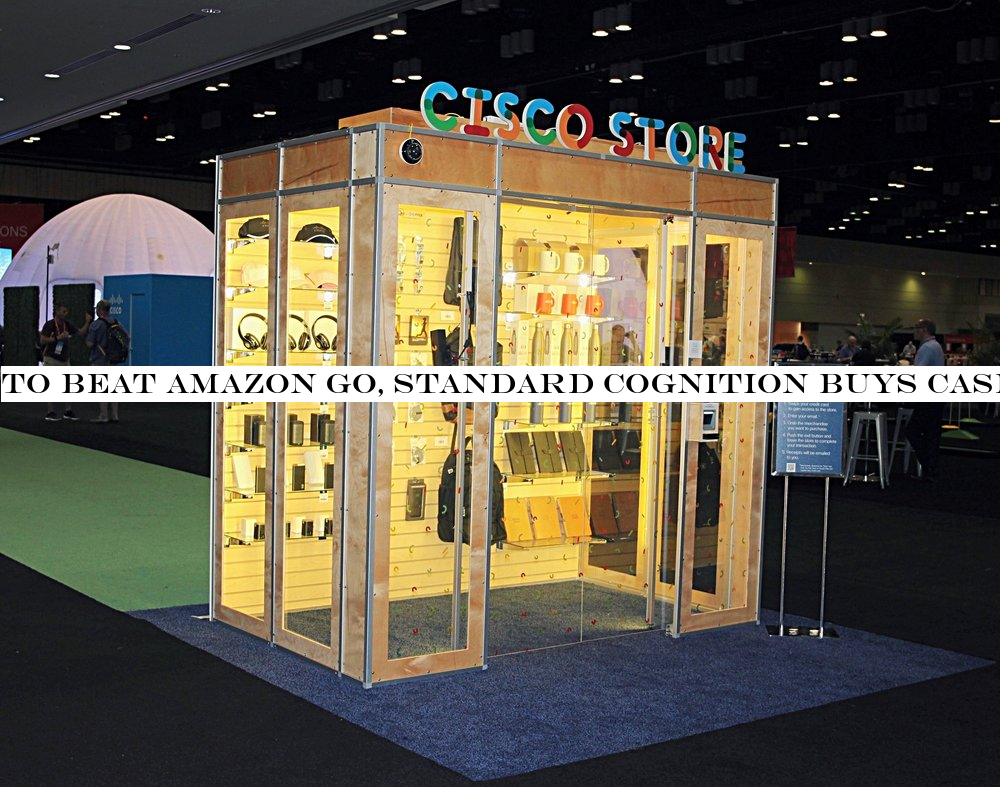
&We&re not an aggressive company by any mean. My personal stance on patents is that maybe they&re not the way the world should work& says Standard Cognition CEO Jordan Fisher. &But given the larger player in the space, I think itthe right thing to do so we have coverage and can protect ourselves.&
DeepMagic let customers swipe a payment card when entering a smaller kiosk or store, pick up items that are detected by cameras, and simply walk out while having their card charged. The idea is that businesses could operate satellite micro-storefronts in malls, apartment buildings and more without staff. DeepMagic was easier to deploy since the kiosks were built from the ground up to eliminate annoying checkout lines.
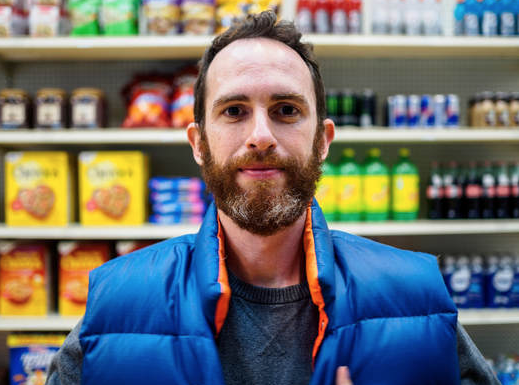
Standard Cognition CEO and co-founder Jordan Fisher
Standard Cognition meanwhile focuses on retrofitting full-sized grocers and other stores like one in minor league baseball team the Worcester Red Soxupcoming stadium and others it hasn&t announced. It currently has one experimental shop of its own in San Francisco. Roll outs with partners are more challenging because the startup doesn&t design the building form factor or inventory but is addressing a much bigger market of existing storefronts. It claims it can grow profit margins for shops by up to 100%.
Standard Cognition sees the smaller footprint spots outfitted by DeepMagic as a crucial piece of the autonomous retail landscape. So itacquiring DeepMagictechnology, and bringing co-founder and CEO Bernd Schoner on as a consultant. Standard Cognition won&t pick up DeepMagicX staffers or pilot contracts, but itconsidering how to integrate the technology as ramped up its own deployments. &We were both tackling this problem with a strong focus on the power of computer vision, so it made sense to align ourselves withStandard.& Schoner tells TechCrunch. &We think Standardis in the best position to win this race.&
DeepMagic was mostly founder-funded, but the 5-employee company had raised $150,000 from angel investors since starting in New York in 2017. Yet Standard Cognition, which was founded a few months later, raised a $35 million Series B in July from EQT Ventures and Initialized. It has become a center of gravity in cashierless tech, having pulled in half the total $118 million invested in the space in 2018. Now itconsolidating the space with the DeepMagic buy and its acquisition of retail mapping startup Explorer.ai in January.
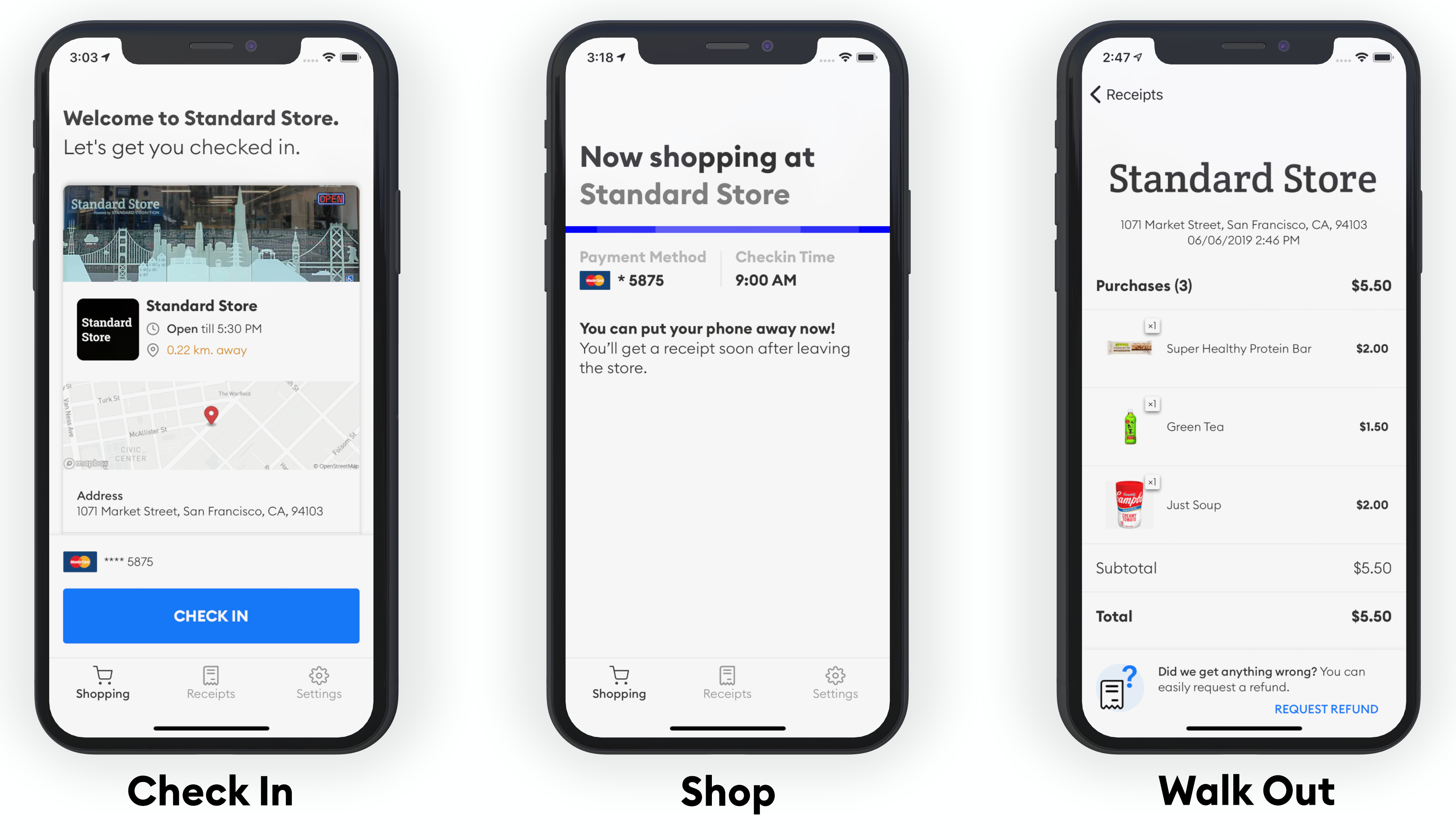
The purpose of the buying spree is getting to market first. &Every day, the thing is speed. I think this is going to be a very fast market. Every day counts. One of my biggest jobs is to keep everybody as motivated today as they will be in 5 years& says Fisher. &6 months today will translate to 20% market share in 5 years. Thatcrazy and ita huge motivating factor. Moving fast enough that we can get the lion share of the market is what keeps me up at night.&
The company also has to outpace fellow startups like direct competitor Zippin, Trigo, and Grabango. Along the way, Standard Cognition been focused on developing unbiased anti-theft technology that doesn&t care what a person looks like, just what items disappear from shelves. Fisher says italso looking into how it can make sure it doesn&t unabashedly grow unemployment. &We&re creating more jobs than we&re displacing right now& Fisher claims, saying it needs people for data labeling to train its artificial intelligence.
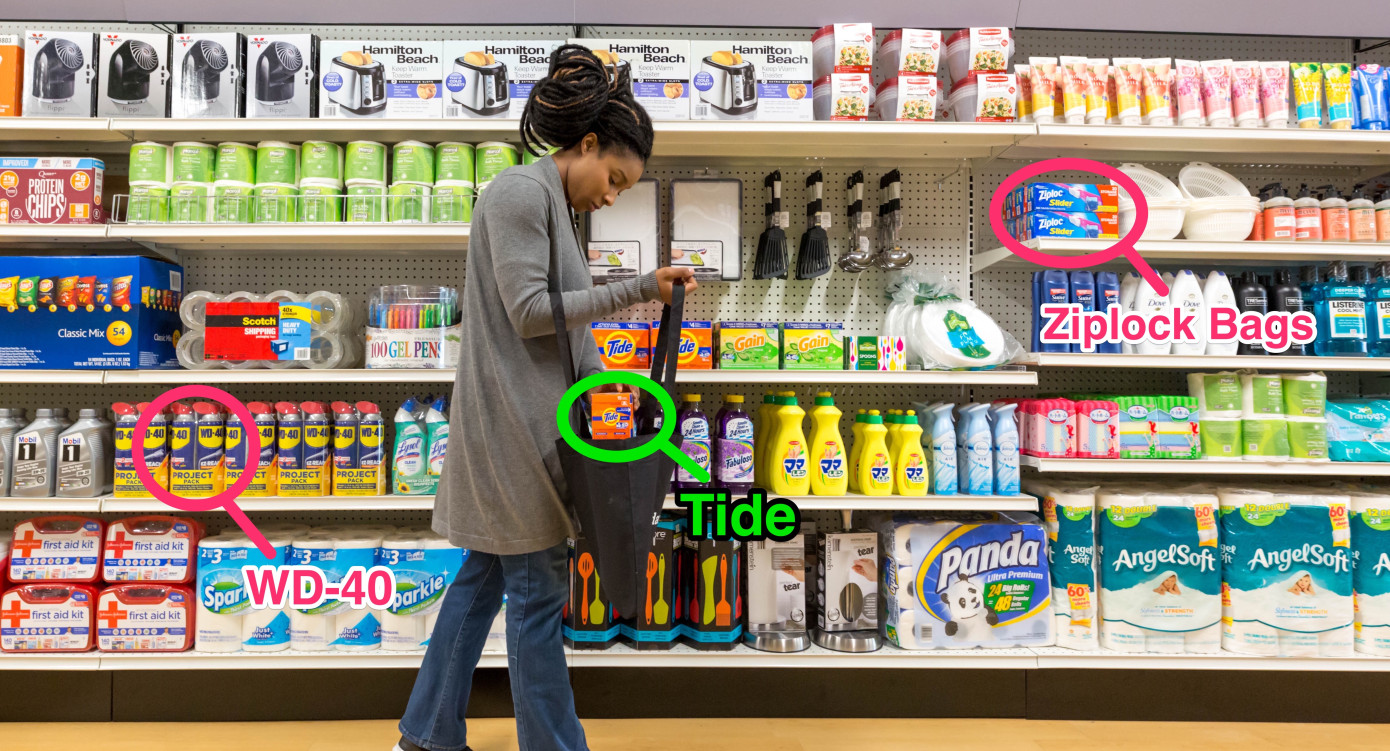
Standard Cognitionco-founder and CEO hopes Amazon will find it just as challenging if it tries to move from running its own 18 or so Go stores to equipping other businesses. The startup also hopes to capitalize on fears about how Amazon might use partners& data the way it does in ecommerce. &I don&t think thatminor at all. Do they get the insights? Can they leverage that to have a better offering on Amazon.com and in their brick-and-mortar stores?& Fisher asks. &Our product offering has none of those strings attached. Thereno ulterior motives.&
- Details
- Category: Technology
Read more: To beat Amazon Go, Standard Cognition buys cashierless DeepMagic
Write comment (92 Comments)
Sophos said it is fixing a vulnerability in its Cyberoam firewall appliances, which a security researcher says can allow an attacker to gain access to a companyinternal network without needing a password.
The vulnerability allows an attacker to remotely gain &root& permissions on a vulnerable device, giving them the highest level of access, by sending malicious commands across the internet. The attack takes advantage of the web-based operating system that sits on top of the Cyberoam firewall.
Once a vulnerable device is accessed, an attacker can jump onto a companynetwork, according to the researcher who shared their findings exclusively with TechCrunch.
Cyberoam devices are typically used in large enterprises, sitting on the edge of a network and acting as a gateway to allow employees in while keeping hackers out. These devices filter out bad traffic, and prevent denial-of-service attacks and other network-based attacks. They also include virtual private networking (VPN), allowing remote employees to log on to their companynetwork when they are not in the office.
Ita similar vulnerability to recently disclosed flaws in corporate VPN providers, notably Palo Alto Networks, Pulse Secure and Fortinet, which allowed attackers to gain access to a corporate network without needing a userpassword. Many large tech companies, including Twitter and Uber, were affected by the vulnerable technology, prompting Homeland Security to issue an advisory to warn of the risks.
Sophos, which bought Cyberoam in 2014, issued a short advisory this week, noting that the company rolled out fixes on September 30.
The researcher, who asked to remain anonymous, said an attacker would only need an IP address of a vulnerable device. Getting vulnerable devices was easy, they said, by using search engines like Shodan, which lists around 96,000 devices accessible to the internet. Other search engines put the figure far higher.
A Sophos spokesperson disputed the number of devices affected, but would not provide a clearer figure.
&Sophos issued an automatic hotfix to all supported versions in September, and we know that 99% of devices have already been automatically patched,& said the spokesperson. &There are a small amount of devices that have not as of yet been patched because the customer has turned off auto-update and/or are not internet-facing devices.&
Customers still affected can update their devices manually, the spokesperson said. Sophos said the fix will be included in the next update of its CyberoamOS operating system, but the spokesperson did not say when that software would be released.
The researcher said they expect to release the proof-of-concept code in the coming months.
- Details
- Category: Technology
Read more: Flaw in Cyberoam firewalls exposed corporate networks to hackers
Write comment (100 Comments)Are consumers ready for meat grown in a lab?
Companies like Memphis Meats, Aleph Farms, Higher Steaks, Mosa Meat and Meatable are all trying to bring to supermarkets around the world meat made from cultivated animal cells, but the problem has always been the cost.
Now, Future Meat Technologies has raised $14 million in new financing to build its first pilot manufacturing facilities to bring the cost of production of a cell-made steak down to $10 per pound — or $4 if the meat is combined with plant-based meat substitutes.
The $10 price tag is a whole lot lower than the $50 target that experts from the Good Food Institute were talking about back in April of this year — and represents a significant cost reduction that makes lab-grown meat a potentially commercially viable option much sooner than anyone expected.
&With this investment, we&re thrilled to bring cultured meat from the lab to the factory floor and begin working with our industrial partners to bring our product to market,& said Rom Kshuk, the chief executive officer of Future Meat Technologies, in a statement. &We&re not only developing a global network of investors and advisors with expertise across the meat and ingredient supply chains, but also providing the company with sufficient runway to achieve commercially viable production costs within the next two years.&
Unlike its other competitors, Future Meat Technologies doesn&t have any interest in selling its products directly to consumers. Rather, the company wants to be the supplier of the hardware and cell lines that anyone would need to become a manufacturer of lab-grown meat.
In a way, itnot much different to the approach that Tyson Foods — an investor in Future Meat through its venture capital arm — has taken with farmers. Tyson contracts with poultry farmers to raise the chickens that the company slaughters and processes, and provides them with the means to raise the chickens for slaughter.
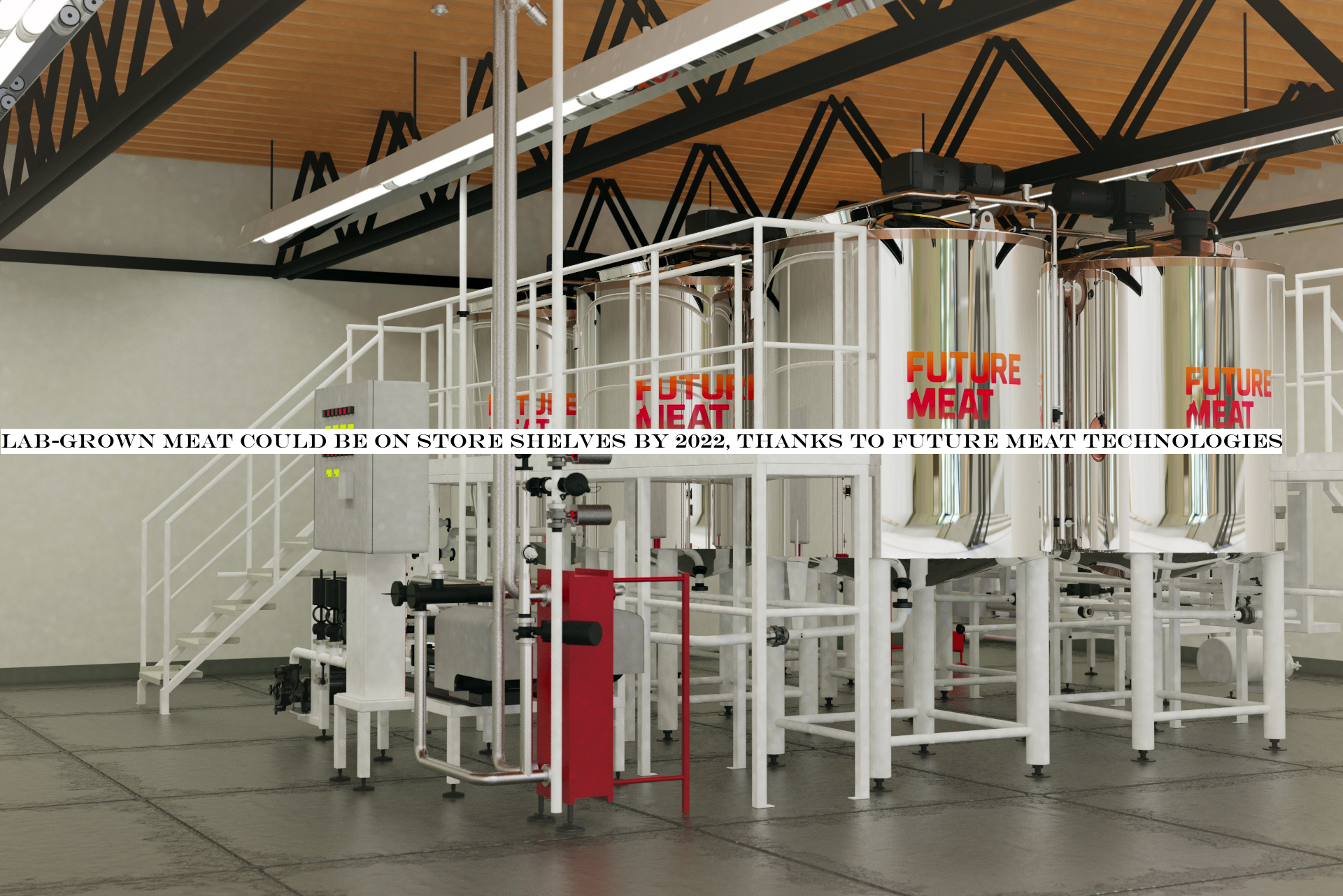
Future Meat production tanks for meat and fat
The secret to Future Meatsuccess is its use of undifferentiated fibroblast cells that can be triggered with small molecules to turn into either fat cells or muscle cells. Once the fat and muscle starts growing, they&re placed in a culture with a specific resin that removes waste materials that have been an impediment to growth at large scales, according to chief science officer and founder Yaakov Nahmias.
While Future Meat doesn&t rely on fetal bovine serum to grow its meat products, it does use small molecules derived from CHO cells (Chinese hamster ovaries), which are used in new medical research and drug manufacturing.
&We have a specific resin to remove the toxins from the media and that allows the cells to continue to grow,& says Nahmias. &It is essentially a new bioreactor design… you can increase the yield to 80%.. For every liter of medium you don&t get 100 grams of biomass you can get 800 grams of biomass… [and] you don&t talk about mega $100 million factories.&
Nahmias says using a refrigerator-sized bioreactor, a manufacturer could get about half a ton of meat and fat in about 14 days. In about one month, growers can make an amount of meat equivalent of two cows& worth of meat (a cow takes about 12 to 18 months to raise for slaughter).
The former Hebrew University of Jerusalem professor first began thinking about the lab-grown meat business while on sabbatical. &It was at a PeetCoffee right next to the Charles River in Cambridge,& Nahmias recalled. &Somebody asked me what I thought about cultured meat… They asked me what I thought about it and I told them it was the stupidest idea I had ever heard in my entire life.&
Growing cells is expensive, Nahmias said at the time, and the fact that the organisms basically grow in their own excrement means that they can&t reproduce effectively to reach any kind of large scale. Thatwhen Nahmias had his &Eureka& moment. &You need cells that grow without any growth factor at all,& says Nahmias. &The only cells that can do that are the least differentiated cells, which are fibroblasts.&
With the new financing from investors — including S2G Ventures, a Chicago-based venture firm (and an early investor in Beyond Meat); Emerald Technology Ventures, a Swiss investment firm; Tyson Ventures (one of the most active strategic investors); and Bits x Bites (a Chinese investor in food and agriculture startups) — Future Meat can now test its business model and manufacturing capabilities at scale.
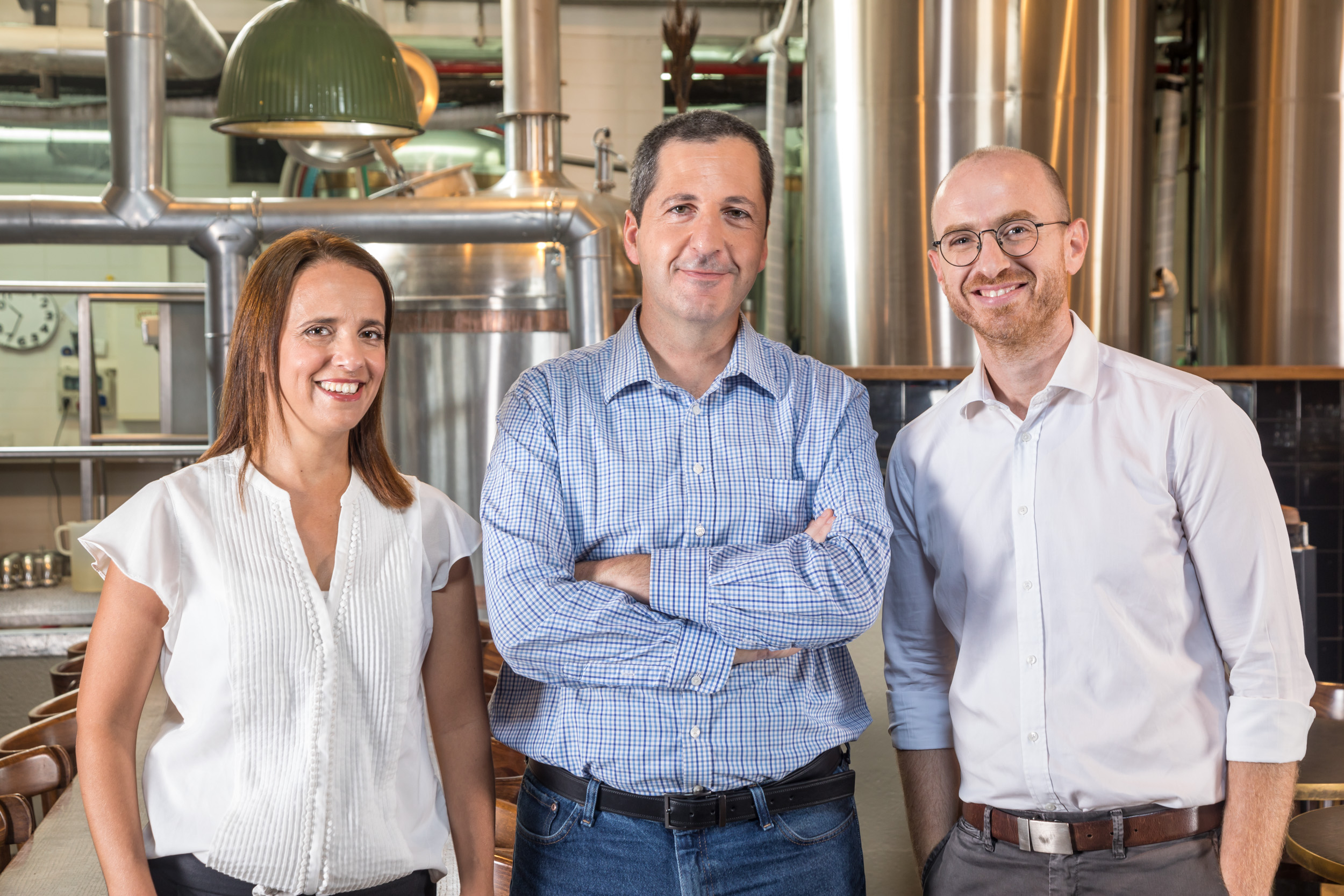
Future Meat leadership, Dr. Moria Shimoni, EVP of R-D; Yaakov Nahmias, CTO and founder; and Rom Kshuk, CEO
&You&re either growing fat or you&re growing muscle of a specific species,& says Nahmias. &Imagine a large truck going to that facility. [It&s] replacing the meat packing plant. From there the biomass goes through a process like extrusion. You can have thousands of these mass producing units. [It&s] going to a central facility where the meat comes out at the end. What we are doing is looking for parity and cost.&
For Nahmias, the fatthe thing that brings the flavor for everything. &The fat gives you the aroma and the distinct flavor of meat,& says Nahmias. &This is the missing ingredient in Impossible Foods and Beyond Meat .&
Nahmias envisions products that are made using a combination of Future Meatlab-grown products and plant proteins that can approximate the full flavors of beef, chicken or lamb (all meats that the company says it is working with).
All Nahmias wants is for Future Meat to get to market; the founder doesn&t care whether thatunder Tysonbrand or anyone else&s. &I want to be the largest company you&ve never heard of,& says Nahmias. &I want to make a product that is more sustainable and more cost-efficient, and is better for everybody.&
Like all of the other companies pursuing alternatives to animal husbandry, Future Meat, which was only founded last year, has a mission to reduce the environmental impact of meat eating. The company argues that its manufacturing model will reduce land use by 99% and emit 80% less greenhouse gas than traditional meat production.
&This continues our investment in Future Meat Technologies, which is focused on disruptive technologies related to our core business,& said Amy Tu, president of Tyson Ventures, in a statement. &We are broadening our exposure to alternative ways of producing protein to feed a growing world population.&
Ultimately the goal is getting to cost parity with regular beef. The company thinks a hybrid product could be $3 to $4, while the 100% biomass product would be roughly $10.
&We&re taking a yes and ‘Yes and& as opposed to an either-or approach to the space,& says Matthew Walker, a managing director at S2G Ventures. &You will have animal-based meat, plant-based meat and you will have hybrid products. Itmore about the supply chain and the technological products that would bring this product to market. We think thereroom in the market for somebody to play that role.&
Nahmias and Kshuk think thatthe role Future Meat Technologies was born to play.
- Details
- Category: Technology
Read more: Lab-grown meat could be on store shelves by 2022, thanks to Future Meat Technologies
Write comment (94 Comments)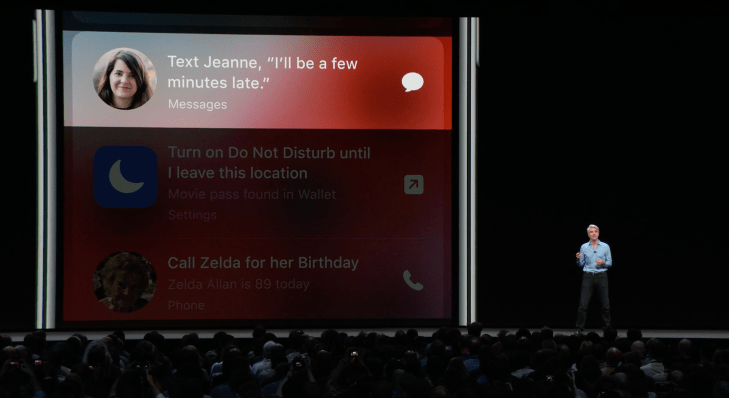
Apple is rolling out a new opt-in notice for Siri audio sample review with the beta of iOS 13.2. This new opt-in feature was promised back in August after reports that audio from Siri requests were being reviewed by contractors and that the audio could contain sensitive or personal information.
Apple had previously halted the grading process entirely while it updated the process by which it used the audio clips to &improve Siri.&
The new process will include an explicit opt-in for those users who want to have clips of commands transmitted to Apple to help improve how well Siri understands commands.
The update is out in beta foriPadOS 13.2, iOS 13.2, Apple tvOS 13.2, WatchOS 6.1 and MacOS 10.15.1.
Some particulars of the new policy include:
- An explicit opt-in.
- Only Apple employees will be reviewing audio clips, not contractors.
- Computer generated transcripts are continuing to be used for all Siri users. These are in text form with no audio. They have been disassociated from identifying information by use of a random identifier.
- These text transcripts, which Apple says include a small subset of requests may be reviewed by employees or contractors.
- Any user can opt-out at any time at Settings > Privacy > Analytics and Improvements, turn off &Improve Siri and Dictation.&
Apple is also launching a new Delete Siri and Dictation History feature. Users can go to Settings>Siri and Search>Siri History to delete all data Apple has on their Siri requests. If Siri data is deleted within 24 hours of making a request, the audio and transcripts will not be made available to grading.
The new policies can be found at Settings>Privacy>Analytics and Improvements>About Siri in the iOS 13.2 beta. A key section details how these segments are used:
If one of your Siri or Dictation interactions is selected for review, the request, as well as the response Siri provided, will be analyzed to determine accuracy and to generally improve Siri, Dictation, and natural language processing functionality in Apple products and services. Depending on the context of your request, Apple employees may review Siri Data directly relevant to the request, in order to grade the effectiveness of Siriresponse. Only Apple employees, subject to strict confidentiality obligations, are able to access audio interactions with Siri and Dictation.
There seems to be a solid set of updates here for Siri protections and user concerns. The continued use of text transcripts that may be reviewed by contractors is one sticky point — but the fact that they are text, anonymized and separated from any background audio may appease some critics.
These were logical and necessary steps to make this process more clear to users — and to get an explicit opt-in for people who are fine with it happening.
The next logical update, in my opinion, would be a way for users to be able to see and hear the text and audio that Apple captures from their Siri requests. If you could see, say, your last 100 requests in text or by clip — the same information that may be reviewed by Apple employees or contractors, I think it would go a long way to dispelling the concerns that people have about this process.
This would fit with Applestated policy of transparency when it comes to user privacy on their platforms. Being able to see the same things other people are seeing about your personal data — even if they are anonymized — just seems fair.
- Details
- Category: Technology

Dyson said it will end its electric vehicle project after determining it could not make the car commercially viable or find a buyer.
The company, known for its high-tech vacuum cleaners and fans, said in a statement Thursday that its automotive team had developed a fantastic car, but decided to close the project. Dyson also sought a buyer for the project, but has been unsuccessful so far, the company said in the statement.
Dyson announced in September 2017 that it was working ona battery electric vehicle with an all-electric drivetrain that would be launched by 2020. The companyboard approved in October 2018 a decision to construct its first advanced automotive manufacturing facility in Singapore. The two-story manufacturing facility was scheduled for completion in 2020.
Dyson isn&t totally abandoning technology related to electric cars, and says itstill committed to Singapore. The company will continue its £2.5 billion ($3.1 billion) investment program into new technology and plans to focus on manufacturing solid-state batteries and developing sensing technologies, vision systems, robotics, machine learning and AI, company founder James Dyson wrote in the statement.
&Our battery will benefit Dyson in a profound way and take us in exciting new directions,& he wrote, adding that the companyinvestment appetite is undiminished and it will continue to deepen its roots in both the U.K. and Singapore.
Dyson said the closure was not a product failure, or a failure of the team. The company is looking to find alternative roles for employees who worked on the project and has enough vacancies in its home business to absorb most of these people, according to Dyson.
&Since day one we have taken risks and dared to challenge the status quo with new products and technologies,& Dyson wrote in the statement. &Such an approach drives progress, but has never been an easy journey — the route to success is never linear. This is not the first project which has changed direction and it will not be the last. I remain as excited about the future of Dyson as I have always been; our ambitions have never been higher, our ability to invest has never been greater, and the team has never been stronger.&
- Details
- Category: Technology
Read more: Dyson kills its electric car project and turns to solid-state batteries
Write comment (94 Comments)Page 677 of 5614

 20
20





